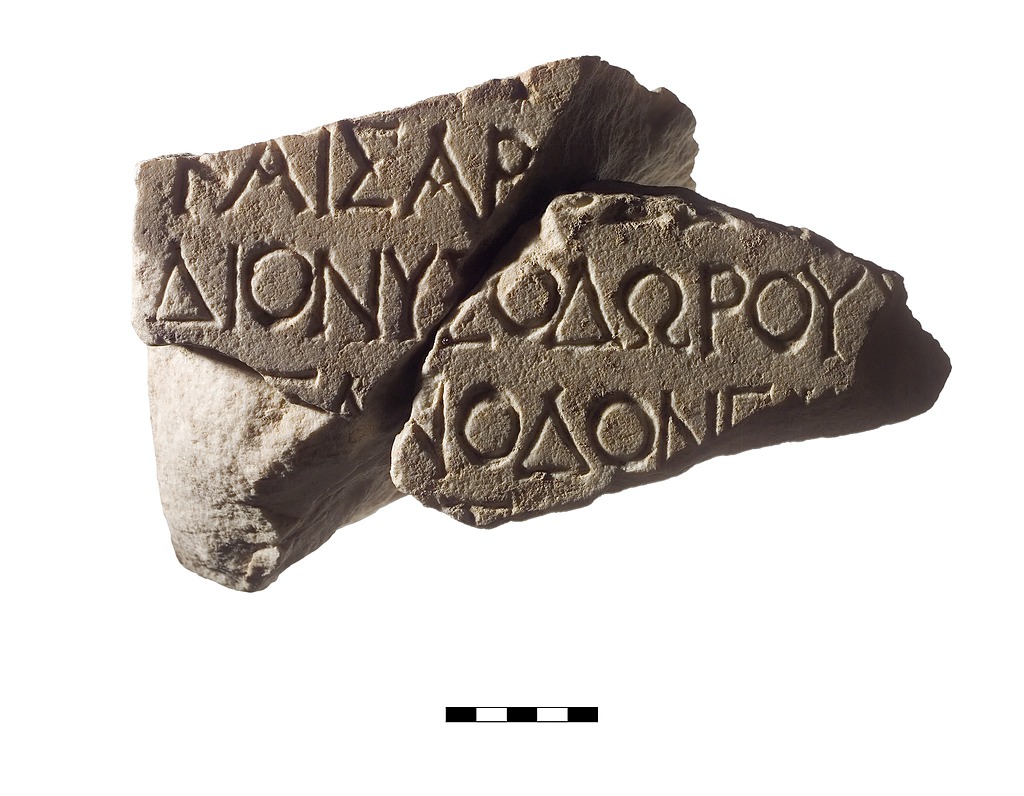18

Contract Futures
Liquid and Nasal Verb Stems
As a general rule, Greeks tended to avoid pronouncing –σ– directly after a liquid (-λ, –ρ) or a nasal (-μ, –ν). We have encountered this situation before. Recall that in our earlier discussion of the Greek noun, the nominative singular ending –ς regularly drops when added to noun stems ending in –ν (e.g. δαιμον-, αἰων-, ἡγεμον-).
As a result, when the future tense marker –σ– was added to a verb stem that ends in a liquid or nasal, some Greek dialects, including Classical Greek, tended to avoid pronouncing what would have been the resulting sounds: –λσω, –ρσω, –μσω, –νσω. This was done by adding an –ε– before the –σ-. As a result, the future tense marker of liquid and nasal stem verbs became –εσ-, to which would then be added the regular –ω endings: –εσω, –εσεις, –εσει, etc.
In Classical Greek, it is a general (though sometimes broken) rule that an INTERVOCALIC SIGMA – i.e., a –σ– found between two vowels – drops out, and the two remaining vowel sounds, now side-by-side, contract (S 120). For example, the future tense of αἴρω, raise, originally was ἀρέσω (note that the verb stem, ἀρ-, has been slightly changed in the present stem). In Attic Greek pronunciation, the –σ– gradually dropped out, producing the form ἀρέω. Attic Greek then contracted –έω just as it does for regular present tense –έω verbs.
These contract futures are sometimes called ATTIC FUTURES, because this type of contraction happens much more regularly in Classical Greek than in other Greek dialects, including Koine (S 538-539).
So, putting it all together, contract futures conjugate as follows (cf. S 401; GPH p. 116):
αἴρω, ἀρῶ raise
|
(ἀρέω →) ἀρῶ I will raise |
(ἀρέομεν →) ἀροῦμεν we will raise |
|
(ἀρέεις →) ἀρεῖς you will raise |
(ἀρέετε →) ἀρεῖτε you all will raise |
|
(ἀρέει →) ἀρεῖ (s)he, it will raise |
(ἀρέουσι →) ἀροῦσι they will raise |
Future infinitive active: (ἀρέειν →) ἀρεῖν
With only one common exception (ἐλαύνω, ἐλῶ, see below), all contract futures can be assumed to be –έω contracts. As a result, the SECOND PRINCIPAL PART of verbs with contract futures are written in their contracted form. Note the following verbs, and the SUBTLE CHANGES that some exhibit in their PRESENT STEMS (cf. S 20, 517-519).
- ἀγγέλλω, ἀγγελῶ report, tell
- αἴρω, ἀρῶ raise
- ἀποκτείνω, ἀποκτενῶ kill
- ἀπόλλυμι, ἀπολῶ kill, destroy
- βάλλω, βαλῶ throw
- διαφθείρω, διαφθερῶ destroy
- κρίνω, κρινῶ judge, decide, determine
- μένω, μενῶ remain, stay
- τέμνω, τεμῶ cut
- φαίνω, φανῶ make appear
–ιζω Verbs
Another class of ATTIC FUTURES are verbs whose stems end in –ιζ. Since –ζ is a dental, we should anticipate that the addition of the future tense marker –σ– would produce a future tense stem ending in –ίσω. For example, the future of νομίζω, “think, believe” would be νομίσω.
In practice, however, Classical Greek regularly dropped the –σ-, and replaced it with an –ε-, resulting initially in a form like νομιέω. As you can by now imagine, the –έω would then contract. Note the following examples:
- ἐλπίζω, ἐλπιῶ hope for
- κομίζω, κομιῶ provide for
- νομίζω, νομιῶ think, believe
Other Contract Futures
- ἐλαύνω, ἐλῶ march
- This future is an –άω contract: ἐλῶ, ἐλᾷς, ἐλᾷ, etc.!)
- καλέω, καλῶ call
- We might expect καλήσω, but we would be wrong. Note that the present and future tense are identical in form!
– τὸ τέλος –
Key Terms and Concepts
- CONTRACT FUTURES
- INTERVOCALIC SIGMA
- ATTIC FUTURES
- FUTURE OF –ίζω VERBS
- FUTURE TENSE OF ἐλαύνω AND καλέω
Vocabulary
Liquid or Nasal Verb Stems
- ἀγγέλλω, ἀγγελῶ report, tell
- αἴρω, ἀρῶ raise
- ἀποκτείνω, –κτενῶ kill
- ἀπόλλυμι, ἀπολῶ kill, destroy
- βάλλω, βαλῶ throw
- διαφθείρω, –φθερῶ destroy
- κρίνω, κρινῶ judge, decide, determine
- μένω, μενῶ remain, stay
- τέμνω, τεμῶ cut
- φαίνω, φανῶ make appear
–ιζω Verbs
- ἐλπίζω, ἐλπιῶ hope for
- κομίζω, κομιῶ provide for
- νομίζω, νομιῶ think, believe
Other Contract Futures
- ἐλαύνω, ἐλῶ march
- καλέω, καλῶ call
Exercises
Ι. Translate the following verbs into their corresponding Greek form. For some, there may be more than one possibility.
- they will believe
- s/he lives
- I will accuse
- we sail
- you all will call
- you are babbling
- they are thinking
- we allow
- s/he shows
- they will remain
- it seems
- you all reveal
- we will throw
- they will kill
- I love
Readings
Biblical sentences: AGE Ch. 18a.
LXX Ezekiel 34:17-31: AGE Ch. 18b.
Selections from LXX Gen 18:24-32: AGE Ch. 18c.
